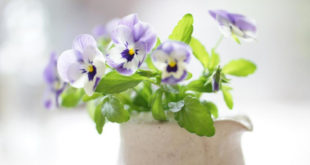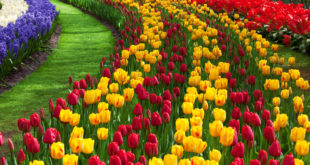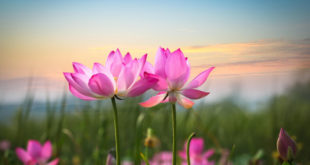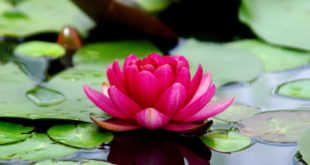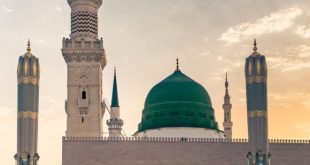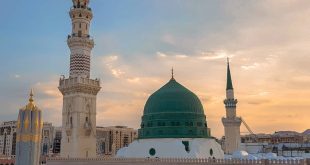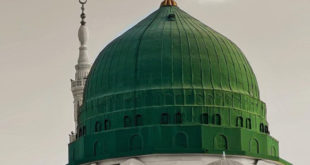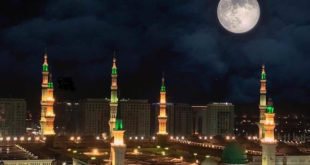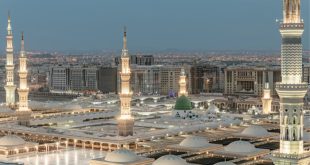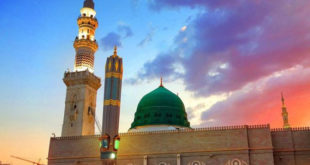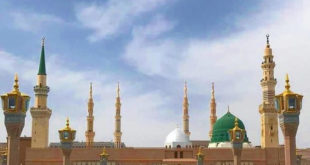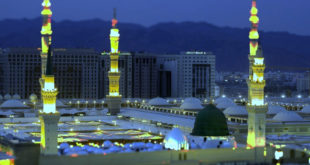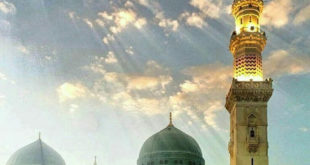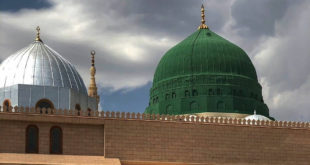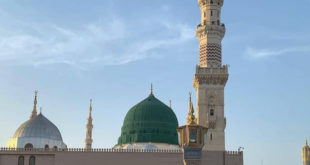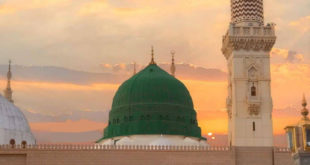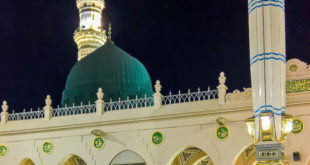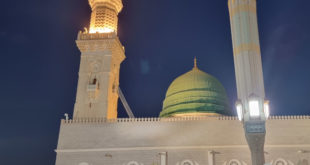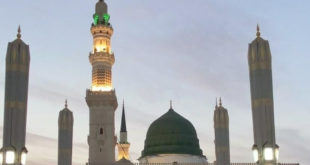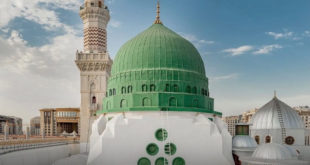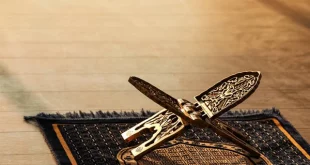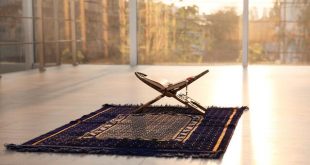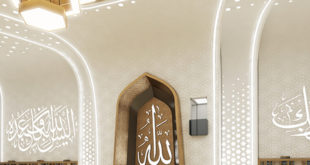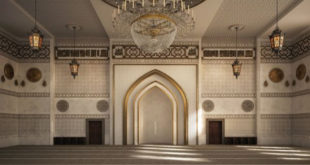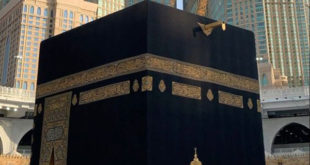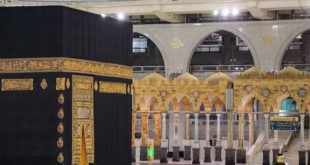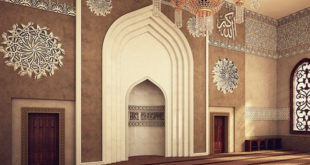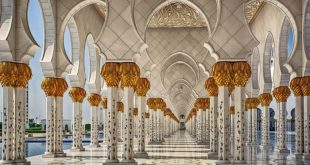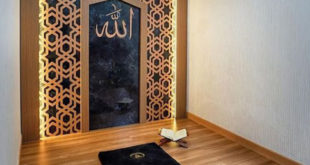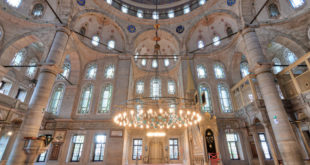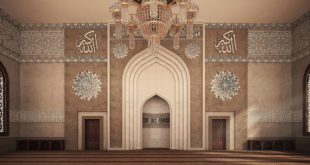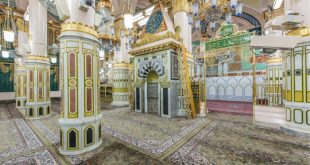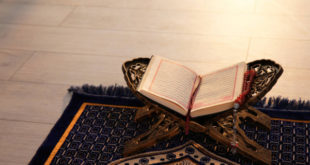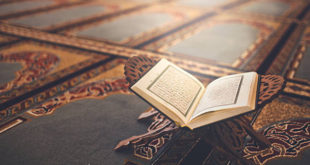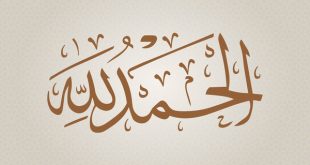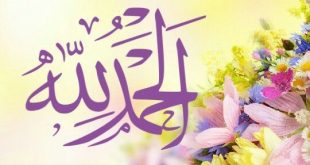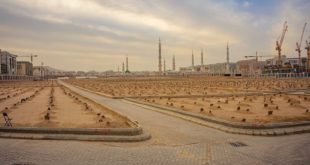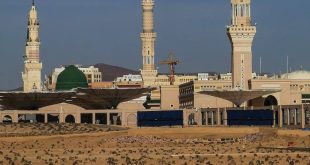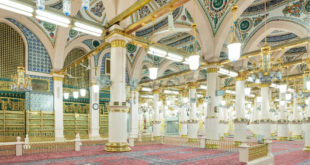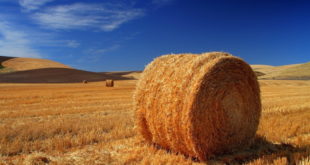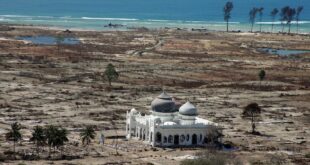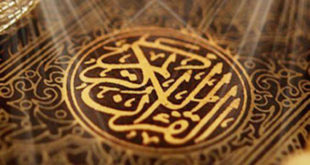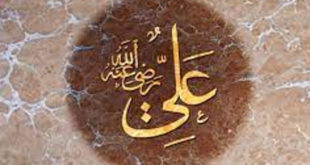Introduction Imaam Maalik (Rahmatullahi Alaihi) was born in the year 95 A.H., and was 15 years younger than Imaam Abu Hanifah (Rahmatullahi Alaihi). He passed away on the 14th of Rabi-ul-Awwal, 179 A.H. [1] His Expertise Abu Nu’aim (Rahmatullahi Alaihi) narrates from Abu Mus’ab (Rahmatullahi Alaihi): “I heard Imaam Maalik …
Read More »Recent Posts
December, 2014
-
10 December
Meditation and Reflection
We hear the word “muraaqabah – meditation and reflection”, but what does it mean? In essence it is to engage the mind in a thought that will bring one closer to Allah Ta‘ala. For example, contemplating over the life after death (the grave or Jannat and Jahannam etc.). Allah Ta‘ala …
Read More » -
9 December
Being Disgraced on the Day of Qiyaamah
عن عبد الله بن عمرو رضي الله عنهما قال سمعت رسول الله صلى الله عليه و سلم يقول من سمع الناس بعمله سمع الله به سامع خلقه وصغره وحقره رواه الطبراني في الكبير بأسانيد أحدها صحيح والبيهقي (الترغيب والترهيب 1/76) Hadhrat Abdullah bin Amr (Radhiallahu Anhuma) reports that Rasulullah (Sallallahu …
Read More » -
8 December
Customary Practices introduced in Today’s Wedding Functions
Hazrat Shaikh Moulana Muhammad Zakariyya (rahmatullahi ‘alaih) once mentioned: I am not in favour of the manner in which the wedding functions of today are conducted. People have unnecessarily made things difficult for themselves. One enlists the name of a person one wishes to invite, thereafter one remembers the next …
Read More » -
8 December
Having a Good Opinion of Allah Ta’ala
Hazrat Moulana Ashraf Ali Thanwi (rahmatullahi ‘alaih) once mentioned: “One should always entertain a good opinion of Allah Ta’ala. In this way, one’s love for Allah Ta’ala will increase and Allah Ta’ala will also be pleased with him. Consider how terrible it would be if despite Allah Ta‘ala continuously showering …
Read More »
-
Tafseer of Surah Naazi’aat
وَ النّٰزِعٰتِ غَرۡقًا ۙ﴿۱﴾ وَّ النّٰشِطٰتِ نَشۡطًا ۙ﴿۲﴾ وَّ السّٰبِحٰتِ سَبۡحًا ۙ﴿۳﴾ فَالسّٰبِقٰتِ سَبۡقًا ۙ﴿۴﴾ …
Read More » -
Hazrat Talhah (radhiyallahu ‘anhu) in the Battle of Uhud
-
The Bravery of Rasulullah (sallallahu ‘alaihi wasallam) – Orchards of Love – Part 75
-
The Brother-in-law of Rasulullah (sallallahu ‘alaihi wasallam)
-
The Compass of the Hearts of the Sahaabah (radhiyallahu ‘anhum) – The Tolerance of Rasulullah (sallallahu ‘alaihi wasallam) – The Orchards of Love – Part Seventy Four
-
Receiving Seventy Rewards
Hazrat Abdullah bin Amr bin Aas (radhiyallahu ‘anhuma) reported, “Whoever sends salutations upon Nabi (sallallahu ‘alaihi wasallam) once, Allah Ta‘ala and His angels will send seventy mercies and blessings upon him in return of his one Durood. Hence, whoever wishes to increase his Durood should increase it, and whoever wishes to decrease his Durood should decrease it (i.e. if he wants to earn great rewards, then he should increase his Durood).”
Read More » -
Increase in Sustenance
-
The Reward of Fasting on the Day of Arafah
-
The Angel that Stands at the Blessed Grave of Hazrat Rasulullah (sallallahu ‘alaihi wasallam) to Convey the Durood of the Ummah
-
Reciting Durood when Entering the Musjid
-
Sunnats and Aadaab of the Host – 4
4. In the mubaarak Ahaadith, Rasulullah (sallallahu alaihi wasallam) advised the ummah as to which …
Read More » -
Sunnats and Aadaab of the Host – 3
-
Sunnats and Aadaab of the Host – 2
-
Sunnats and Aadaab of the Host – 1
-
Sunnats and Aadaab which every person needs to adhere to in his individual life – 9
-
Hazrat Ali (radhiyallahu ‘anhu) – Part Forty-One – Being Sent by Rasulullah (sallallahu ‘alaihi wasallam) to Level the Graves, Destroy Idols and Erase Pictures
Hazrat Ali (radhiyallahu ‘anhu) reports that on one occasion, Rasulullah (sallallahu ‘alaihi wasallam) attended a …
Read More » -
Rasulullah (sallallahu ‘alaihi wasallam) Approving of the Verdict of Hazrat Ali (radhiyallahu ‘anhu) – Part Forty
-
The True Ulamaa – Hazrat Ali (radhiyallahu ‘anhu) – Part Thirty Nine
-
Du‘aa for Assistance in Settling Debts – Hazrat Ali (radhiyallahu ‘anhu) – Part Thirty Eight
-
The Concern of Hazrat Ali (radhiyallahu ‘anhu) regarding Business being Conducted According to the Islamic Principles – Part Thirty Seven
 Ihyaaud Deen An Effort to Revive Deen in Totality
Ihyaaud Deen An Effort to Revive Deen in Totality


